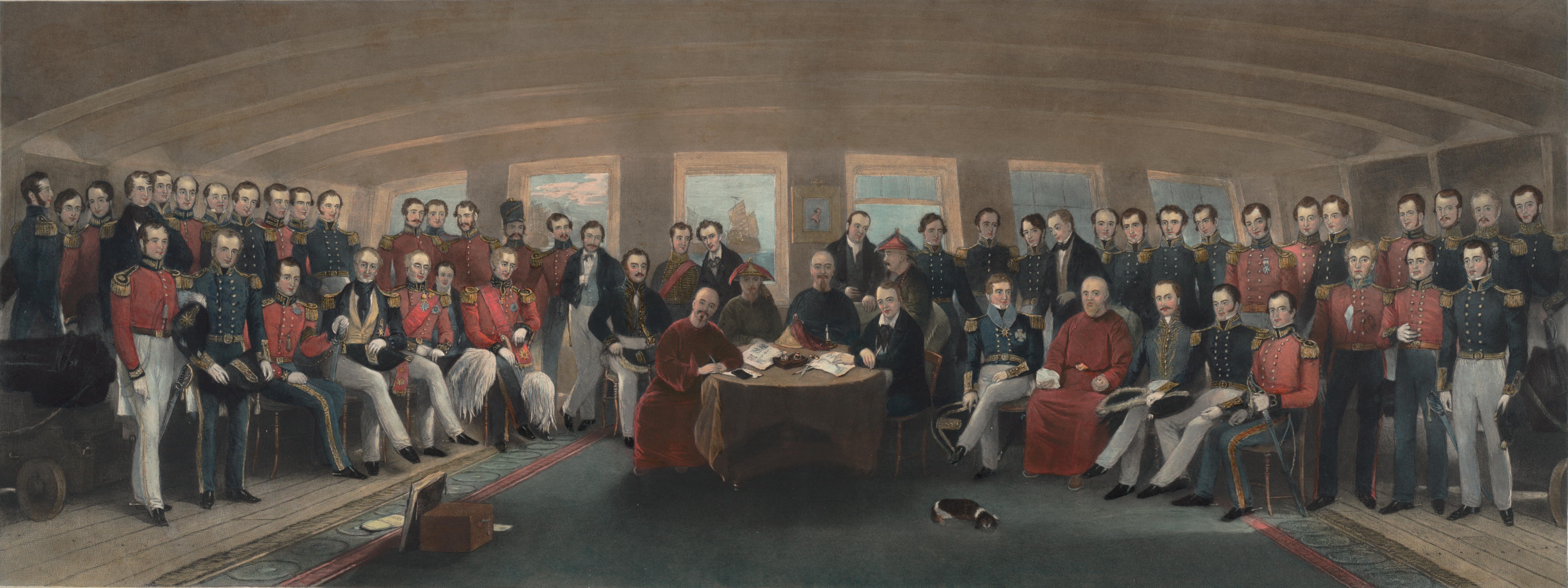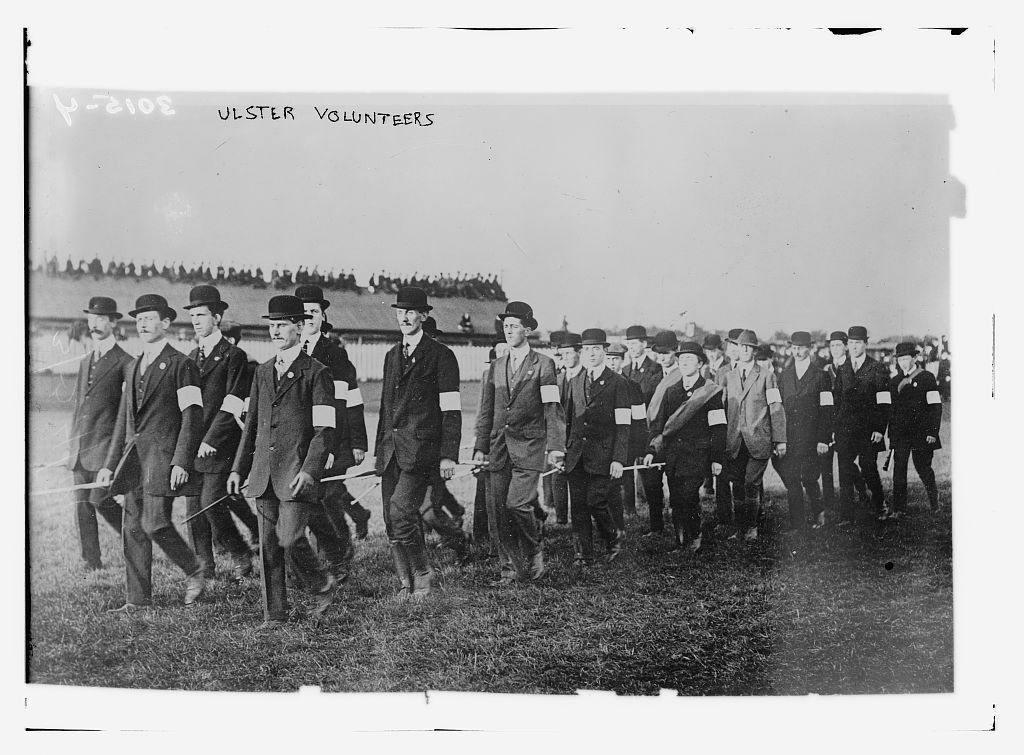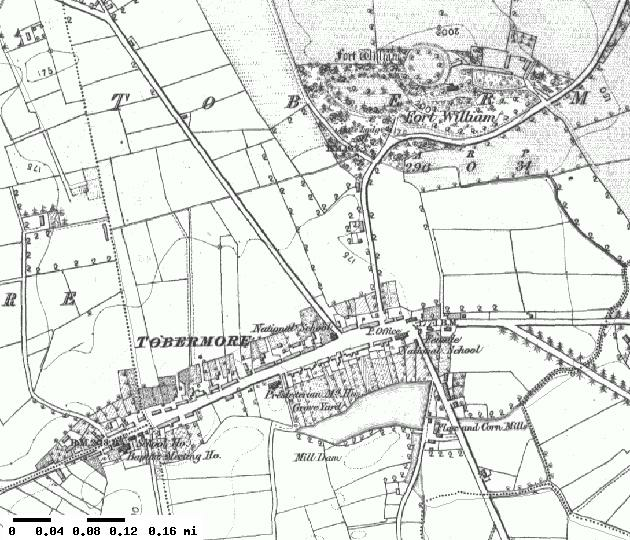|
Hiram Parkes Wilkinson
Hiram Parkes "Harrie" Wilkinson, KC (9 June 1866 – 1 April 1935) served as Crown Advocate of the British Supreme Court for China and Japan from 1897 to 1925. He was also Acting Assistant Judge of the British Court for Siam from 1903 to 1905 and Judge of the British High Court of Weihaiwei from 1916 to 1925. He was the son of Sir Hiram Shaw Wilkinson who also served as Crown Advocate, Judge of the British Court for Japan and Chief Justice of the British Supreme Court for China and Corea. Early life Wilkinson was born on 9 June 1866 in a bungalow at the British Legation on the Bluff in Yokohama, Japan while his father was a student interpreter in the British Japan Consular Service. He was called Harrie by his family. He was presumably named after Harry Parkes who was then British Minister in Japan. He was brought up in Japan before attending school at the Methodist College Belfast and Exeter College, Oxford. After qualifying as a barrister in 1890, he practiced briefly ... [...More Info...] [...Related Items...] OR: [Wikipedia] [Google] [Baidu] |
British Supreme Court For China And Japan
The British Supreme Court for China (originally the British Supreme Court for China and Japan) was a court established in the Shanghai International Settlement to try cases against British subjects in China, Japan and Korea under the principles of extraterritoriality. The court also heard appeals from consular courts in China, Japan and Korea and from the British Court for Japan which was established in 1879. History of the court Britain had acquired extraterritorial rights in China under the Treaty of Nanking in 1842. The United States obtained further extraterritorial rights under the Treaty of Wanghsia, which Britain was able to take advantage of under the Most Favoured Nation provision in a Supplemental Agreement to the Treaty of Nanking. Subsequently, under the Treaty of Tientsin, these rights were provided for directly in a Sino-British Treaty. In 1858, Britain obtained extraterritorial rights in Japan under the Anglo-Japanese Treaty of Amity and Commerce. The Tr ... [...More Info...] [...Related Items...] OR: [Wikipedia] [Google] [Baidu] |
British Supreme Court For China
The British Supreme Court for China (originally the British Supreme Court for China and Japan) was a court established in the Shanghai International Settlement to try cases against British subjects in China, Japan and Korea under the principles of extraterritoriality. The court also heard appeals from consular courts in China, Japan and Korea and from the British Court for Japan which was established in 1879. History of the court Britain had acquired extraterritorial rights in China under the Treaty of Nanking in 1842. The United States obtained further extraterritorial rights under the Treaty of Wanghsia, which Britain was able to take advantage of under the Most Favoured Nation provision in a Supplemental Agreement to the Treaty of Nanking. Subsequently, under the Treaty of Tientsin, these rights were provided for directly in a Sino-British Treaty. In 1858, Britain obtained extraterritorial rights in Japan under the Anglo-Japanese Treaty of Amity and Commerce. The Trea ... [...More Info...] [...Related Items...] OR: [Wikipedia] [Google] [Baidu] |
Student Interpreter
Student interpreter was, historically, an entry-level position in the British and American diplomatic and consular service, principally in China, Japan, Siam and, in the case of the United States, Turkey. It is no longer used as a title. A number of former student interpreters rose to senior diplomatic positions. Britain The British Foreign Office appointed student interpreters after the opening of China and Japan in the mid-19th Century to learn the language of either country with the goal of developing a consular corps fluent in the local languages. Consular officers were expected to remain in their chosen country for the rest of their career. Notable former British student interpreters include: * Sir Sidney Barton (1876-1946), British Minister to Ethiopia * Sir Frederick Samuel Augustus Bourne CMG (1854-1940), Assistant Judge of the British Supreme Court for China and Japan * Penrhyn Grant Jones CBE (1878-1945), Assistant Judge of the British Supreme Court for China and Ja ... [...More Info...] [...Related Items...] OR: [Wikipedia] [Google] [Baidu] |
36th Ulster Division
The 36th (Ulster) Division was an infantry division of the British Army, part of Lord Kitchener's New Army, formed in September 1914. Originally called the ''Ulster Division'', it was made up of mainly members of the Ulster Volunteer Force, who formed thirteen additional battalions for three existing regiments: the Royal Irish Fusiliers, the Royal Irish Rifles and the Royal Inniskilling Fusiliers. However, regular Officers and Soldiers and men from all around the United Kingdom made up the strength of the Division. The division served from October 1915 on Western Front as a formation of the British Army during the Great War. The division's insignia was the Red Hand of Ulster. History Formation The Ulster Volunteers were a unionist militia founded in 1912 to block Home Rule for Ireland. In 1913 they organised themselves into the Ulster Volunteer Force to give armed resistance to the prospective Third Home Rule Act (enacted in 1914). Many Ulster Protestants feared bein ... [...More Info...] [...Related Items...] OR: [Wikipedia] [Google] [Baidu] |
Ulster Volunteers
The Ulster Volunteers was an Irish unionist, loyalist paramilitary organisation founded in 1912 to block domestic self-government ("Home Rule") for Ireland, which was then part of the United Kingdom. The Ulster Volunteers were based in the northern province of Ulster. Many Ulster Protestants and Irish unionists feared being governed by a nationalist Catholic-majority parliament in Dublin and losing their links with Great Britain. In 1913, the militias were organised into the Ulster Volunteer Force (UVF) and vowed to resist any attempts by the British Government to impose Home Rule on Ulster. Later that year, Irish nationalists formed a rival militia, the Irish Volunteers, to safeguard Home Rule. In April 1914, the UVF smuggled 25,000 rifles into Ulster from Imperial Germany. The Home Rule Crisis was interrupted by the First World War. Much of the UVF enlisted with the British Army's 36th (Ulster) Division and went to fight on the Western Front. After the war, the British ... [...More Info...] [...Related Items...] OR: [Wikipedia] [Google] [Baidu] |
Northern Ireland
Northern Ireland ( ga, Tuaisceart Éireann ; sco, label= Ulster-Scots, Norlin Airlann) is a part of the United Kingdom, situated in the north-east of the island of Ireland, that is variously described as a country, province or region. Northern Ireland shares an open border to the south and west with the Republic of Ireland. In 2021, its population was 1,903,100, making up about 27% of Ireland's population and about 3% of the UK's population. The Northern Ireland Assembly (colloquially referred to as Stormont after its location), established by the Northern Ireland Act 1998, holds responsibility for a range of devolved policy matters, while other areas are reserved for the UK Government. Northern Ireland cooperates with the Republic of Ireland in several areas. Northern Ireland was created in May 1921, when Ireland was partitioned by the Government of Ireland Act 1920, creating a devolved government for the six northeastern counties. As was intended, Northern Ireland ... [...More Info...] [...Related Items...] OR: [Wikipedia] [Google] [Baidu] |
North China Daily News
The ''North China Daily News'' (in Chinese: ''Zilin Xibao''), was an English-language newspaper in Shanghai, China, called the most influential foreign newspaper of its time. History The paper was founded as the weekly ''North-China Herald'' (T: 北華捷報, S: 北华捷报, P: ''Běihuá Jiébào'') and was first published on 3 August 1850. Its founder, British auctioneer Henry Shearman (T: 奚安門, S:奚安门, P: ''Xī Ānmén''), died in 1856. A daily edition commenced publication on 1 June 1864 as the ''North China Daily News''. The ''North-China Herald'' was also the gazette (official record) of the British Supreme Court for China and Japan and the British Consulate. Great Britain, Briton Nichol Latimer, resident of Shanghai and the manager of Russell & Company, Russell & Company’s Shanghai Steam Navigation Co., was the publisher of the ''North China Herald'' from 1863 until his death in 1865, during which period it was the most influential British newspaper in China ... [...More Info...] [...Related Items...] OR: [Wikipedia] [Google] [Baidu] |
Tobermore
Tobermore (, named after the townland of Tobermore) is a small village in County Londonderry, Northern Ireland. It lies south-south-west of Maghera and north-west of Magherafelt. Tobermore lies within the civil parish of Kilcronaghan and is part of Mid-Ulster District. It was also part of the former barony of Loughinsholin. Tobermore has won the ''Best Kept Small Village'' award four times and the ''Best Kept Large Village'' award in 1986. Most recently in September 2011, Tobermore won the ''Translink Ulster in Bloom'' village category for the third year in a row. Etymology Tobermore is named after the townland of Tobermore which is an anglicisation of the Irish words ''tobar'' meaning "well" and ''mór'' meaning "big/great", thus Tobermore means "big/great well". During the seventeenth century, Tobermore was also known as Tobarmore and Tubbermore, with Tubbermore being the preferred usage of the Masonic Order even to this day. Topography Tobermore lies on the descending ... [...More Info...] [...Related Items...] OR: [Wikipedia] [Google] [Baidu] |
Boxer Protocol
The Boxer Protocol was signed on September 7, 1901, between the Qing Empire of China and the Eight-Nation Alliance that had provided military forces (including Austria-Hungary, France, Germany, United Kingdom, Italy, Japan, Russia, and the United States as well as Belgium, Spain, and the Netherlands), after China's defeat in the intervention to put down the Boxer Rebellion. It is regarded as one of the unequal treaties. Negotiations during the Boxer Rebellion The Qing dynasty was by no means defeated when the Allies took control of Beijing. The Allies had to temper the demands they sent in a message to Xi'an to get the Empress Dowager Cixi to agree with them; for instance, China did not have to give up any land. Many of the Dowager Empress' advisers in the Imperial Court insisted that the war continue against the foreigners, arguing that China could defeat them since it was the disloyal and traitorous people within China who allowed Beijing and Tianjin to be captured by the A ... [...More Info...] [...Related Items...] OR: [Wikipedia] [Google] [Baidu] |
Barrister
A barrister is a type of lawyer in common law jurisdictions. Barristers mostly specialise in courtroom advocacy and litigation. Their tasks include taking cases in superior courts and tribunals, drafting legal pleadings, researching law and giving expert legal opinions. Barristers are distinguished from both solicitors and chartered legal executives, who have more direct access to clients, and may do transactional legal work. It is mainly barristers who are appointed as judges, and they are rarely hired by clients directly. In some legal systems, including those of Scotland, South Africa, Scandinavia, Pakistan, India, Bangladesh, and the British Crown dependencies of Jersey, Guernsey and the Isle of Man, the word ''barrister'' is also regarded as an honorific title. In a few jurisdictions, barristers are usually forbidden from "conducting" litigation, and can only act on the instructions of a solicitor, and increasingly - chartered legal executives, who perform tasks such ... [...More Info...] [...Related Items...] OR: [Wikipedia] [Google] [Baidu] |
Exeter College, Oxford
Exeter College (in full: The Rector and Scholars of Exeter College in the University of Oxford) is one of the Colleges of the University of Oxford, constituent colleges of the University of Oxford in England and the fourth-oldest college of the university. The college is located on Turl Street, where it was founded in 1314 by Devon-born Walter de Stapledon, Bishop of Exeter, as a school to educate clergymen. At its foundation Exeter was popular with the sons of the Devonshire gentry, though has since become associated with a much broader range of notable alumni, including Raymond Raikes, William Morris, J. R. R. Tolkien, Richard Burton, Roger Bannister, Alan Bennett, and Philip Pullman. History Still situated in its original location in Turl Street, Exeter College was founded in 1314 by Walter de Stapledon of Devon, Bishop of Exeter and later treasurer to Edward II of England, Edward II, as a school to educate clergy. During its first century, it was known as ''Stapeldon Hall'' ... [...More Info...] [...Related Items...] OR: [Wikipedia] [Google] [Baidu] |








